 Petzlover
PetzloverAustralian Cattle Dog is originated from Australia but Lowchen is originated from Germany. Australian Cattle Dog may grow 17 cm / 7 inches higher than Lowchen. Australian Cattle Dog may weigh 8 kg / 18 pounds more than Lowchen. Both Australian Cattle Dog and Lowchen has almost same life span. Both Australian Cattle Dog and Lowchen has almost same litter size. Australian Cattle Dog requires Low Maintenance. But Lowchen requires Moderate Maintenance
During the 19th century, in the New South Wales, lived a cattle farmer Thomas Hall. He wanted to have a perfect cattle dog so he mixed two breeds: dogs used by stockman with the dingo. The new breed was given an interesting name - Halls Heelers. Heelers was a part of the dog breed because this new breed of the dog inherited the nipping instinct. As time passed, one breed was developing in two breeds: the Australian Cattle Dog and the Australian Stumpy Tail Cattle Dog.
The Australian Cattle dog can be found in two available colours: red and blue. This is how they got their nicknames: Red Heeler and Blue Heeler.
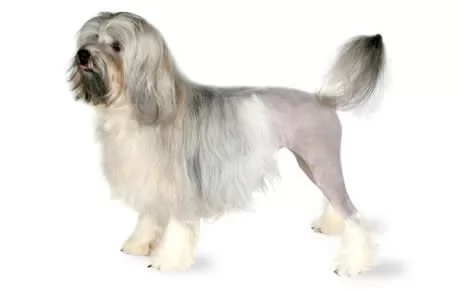 Known as the Little Lion Dog, the Lowchen is considered by some registries as a toy dog and by the American Kennel Club as a non-sporting dog.
Known as the Little Lion Dog, the Lowchen is considered by some registries as a toy dog and by the American Kennel Club as a non-sporting dog.
Nobody seems too certain about the true origin of the dog but most records seem to suggest it originates from Germany, France or Holland.
He was bred to catch rats and mice and his history goes way back to 1442, with images of him being found in engravings and paintings. People think he may be related to the Bichon Frise.
His history shows that apart from being used to catch vermin he was also a companion dog to the wealthy. A breeding program for the dog was started in 1944 and they were later imported to Britain in the late 1960s. The dog was given Kennel Club recognition in the UK in 1971, also appearing in America in 1971 with The Lowchen Club of America being formed.
The Australian Cattle Dog originally mixed with Australian herding dog that was kept near the cattle to guide them. Medium-sized, with the short coat, this dog is generally easy to groom and maintain. It does require more brushing during the shedding period, but it is still not an everyday need. He is easy to train because he likes challenging games and activities which are. It gets very attached to its owner, and he is always protective of them and their possessions. The most common health problems happen with their ears and eyes, but they are usually very healthy and they have a long life – up to 15 years.
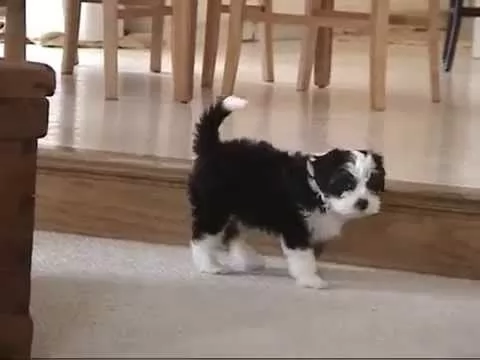 The Lowchen is a small dog but robustly built and stands at between 25 – 33 cm in height and weighs anything from 4 – 8 kg.
The Lowchen is a small dog but robustly built and stands at between 25 – 33 cm in height and weighs anything from 4 – 8 kg.
He has a long coat which is available in a number of colors - cream, white, grey, black, silver and bi-colored. The single coat isn’t like that of the Bichon Frise, thin and fluffy, but is much thicker, silky and wavy and sheds minimally. People love snipping the long coat cut so that the dog looks like a small lion, short over the body and with a mane, with some hair left around the ‘ankle’ parts of the legs.
The tail is also sheared and left with a pom-pom look. People look at him as an ideal pet as he doesn’t shed much and is looked upon as being a hypoallergenic dog.
He has a wide muzzle and broad, flat skull. The ears are floppy with fringing, the eyes dark, round and intelligent looking. The litter size of this dog is is usually between 3 and 6 puppies.
Intelligent, bright, outgoing and affectionate, you won’t find any aggression in this cute little dog unless the owners have treated him so badly that he wants to be aggressive.
He is such an amicable little pet that he won’t cause you any trouble – he just wants to be your friend. He is a social dog, but can be quite timid when introduced to new people.Socialization and training will do wonders for him and give him some confidence.
He just loves receiving attention and is also prepared to give a lot of attention too. Although he can adapt easily to life in the city or the countryside, he wouldn’t like his owners being at work all day and leaving him alone hour after hour. He is gentle with his human family and sees to it that he gets on well with children as well as pets in the home.
Children and Australian Cattle Dogs can grow up together in harmony. They will have a loyal and protective companion. After you properly train your dog and teach your child how to play with the dog, you will bring the friendship on the safe side. Some of them will have the instinct to nip at heels, so you should pay attention to this while training your pet.
Special talents: cattle dog, service dog, therapy dog, police dogs, drug detection dogs.
Australian Cattle Dogs can survive cool, hot and temperate conditions. They can live in a shelter outdoors, and they do well living indoors. But, be aware – without enough physical activity, this dog will end up being frustrated and unhappy.
They will absorb every new trick so quick that you will be amazed. They love to learn, and if you start with some good trick you will raise a great friend and maybe a great competitor in fetch, swim, bring-a-stick, or run-the-show dog sports.
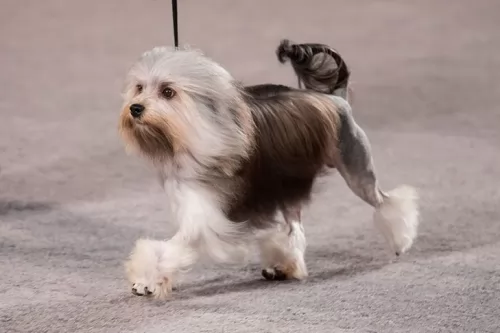 The Lowchen is sure to make anyone a splendid pet as he is friendly, playful, loving and loyal. He is such a good natured pet and will make a wonderful companion, being able to get on well with children and pets in the home.
The Lowchen is sure to make anyone a splendid pet as he is friendly, playful, loving and loyal. He is such a good natured pet and will make a wonderful companion, being able to get on well with children and pets in the home.
He is energetic too and will love to be outside playing games or joining you on a walk. Those who have had the Lowchen as a pet haven’t been disappointed as they all agree that he makes the most amazing family companion.
Health Problems: are mostly inherited. You can avoid this by searching for a good breeder that can clear out the hereditary diseases.
The Australian Cattle Dog is one of the breeds that can be born with progressive retinal atrophy. Progressive rod-cone degeneration is a disease that causes the rods and cones in the retina of the eye to degenerate. It might lead to blindness.
The Australian Cattle Dog is one of the rare breeds with recessive piebald alleles. This gene is the reason why they have white colour on their coat. But, unfortunately, this gene can be the reason why congenital hereditary deafness develops.
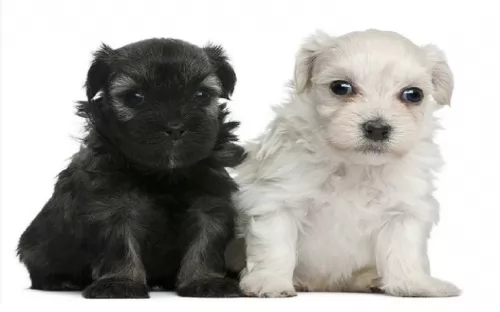 The Lowchen is a healthy dog breed so you aren’t going to be spending too much money with him at the vet. Some health concerns with this particular dog breed are cataracts and patellar luxation.
The Lowchen is a healthy dog breed so you aren’t going to be spending too much money with him at the vet. Some health concerns with this particular dog breed are cataracts and patellar luxation.
It can be so sad witnessing your dog’s bright, alert eyes clouding over. Dogs have clear lens, but cataracts, while not painful, can impair vision and actually lead to complete vision loss. As the eye disease progresses, the lens can become completely opaque.
This occurs when the kneecap of the dog is dislocated from its normal position. You’ll see your dog holding up his hind leg every now and then. It can only be returned to its normal position once the quadriceps muscles of the dog relax.
This is a common knee joint problem in dogs and it can lead to arthritis. He will need to get to the vet.
Herding dog have a history of the joint diseases. That’s why some of the pet suggest feeding a herding dog with meat like chicken, turkey, beef, lamb and fish. Dry dog food, even premium quality, may not be enough for this energetic dogs and their bone structure. But it depends on the dog. The best advice is to always take an advice from your breeder or your wet.
You won’t be very busy with grooming your Australian cattle dog. You don’t have to take everyday care of it. Occasional brushing will be more than enough. Bath the dog only when you notice odour problem.
The Australian Cattle Dog needs a high level of activity. Like many other herding dog breeds, they love walks, spending time with people, running or doing any athletic sports with them, teaching them tricks since they have above average intelligence. Fetching will be super fun for everyone, agility, competitions or any other challenging activity. They love water and they swim very well so you can take the dog with you to the nearest pool and have a great time.
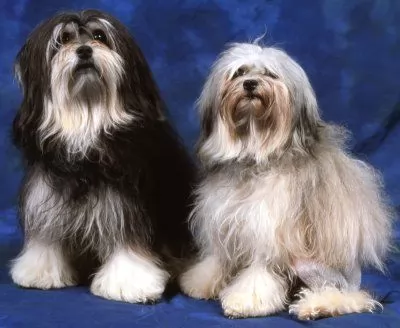 Because your Lowchen is a bright, happy companion dog you want to ensure that you look after him well to ensure his ongoing wellbeing.
Because your Lowchen is a bright, happy companion dog you want to ensure that you look after him well to ensure his ongoing wellbeing.
The single coat is long and you will need to brush him regularly to keep it looking good. If brushing becomes too hectic, you can have him sheared at a professional dog groomer.
Check him over for fleas and ticks while brushing him.
Feel all over his body for the emergence of new lumps.
Clip his nails to ensure they don’t grow long so that they hook on things and tear his flesh.
Check the inside of his ears to make sure there is no sign of redness and ear infection. This can drive your pet mad with the itching. The ears need to be kept clean, as do the teeth and both these can be done for you at professional dog groomers.
Every dog requires exercise and your Lowchen will need games and walks to keep him fit, to ward off obesity and to provide him with something to look forward to.
Make sure to feed your pet wholesome food as good quality food promotes good health and longevity. Give your Lowchen the best quality kibble there is and try and mix in some homemade cooked chicken, brown rice, pasta and cooked or raw vegetables every now and then just to add some tasty variety to your pets diet. Make sure he always has access to fresh, cool water.
Make sure your Lowchen has a warm, dry comfy spot to sleep, and ensue that when he’s outside he has shade to lie down in.